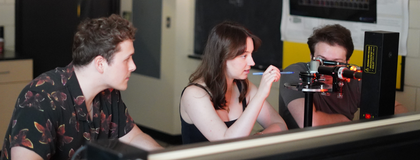
Undergraduate Programs
Nurture your inner curiosity. Physics students at Guelph learn from profs who are not only top researchers, but also award-winning teachers who know how to make challenging concepts click (including two winners of the Canadian Association of Physicists Medal for Excellence in Teaching Undergraduate Physics, and one winner of the prestigious 3M National Teaching Fellowship). You'll be part of a friendly community where asking questions is encouraged and learning feels personal. It's a place where curiosity and support go hand in hand.
Options for Study
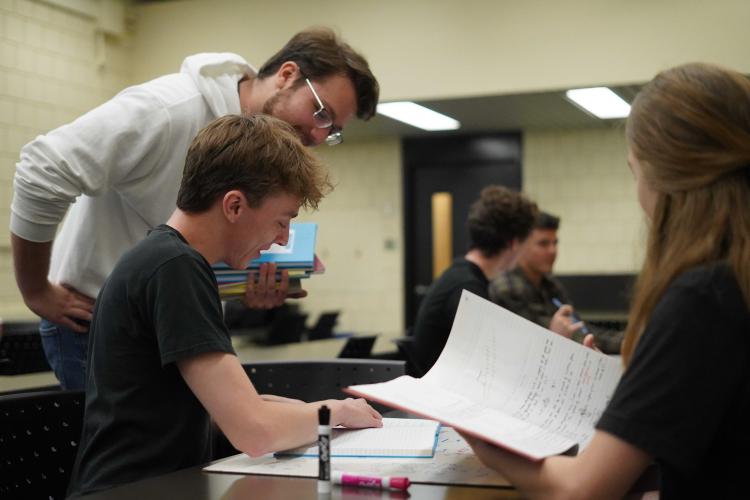
Physics
With emphasis on lab practice, Physics teaches you the fundamentals of mechanics, electromagnetism and quantum physics, setting you up for exciting advanced topics in upper years. In your final year, you'll team up with a prof to tackle a real research project.
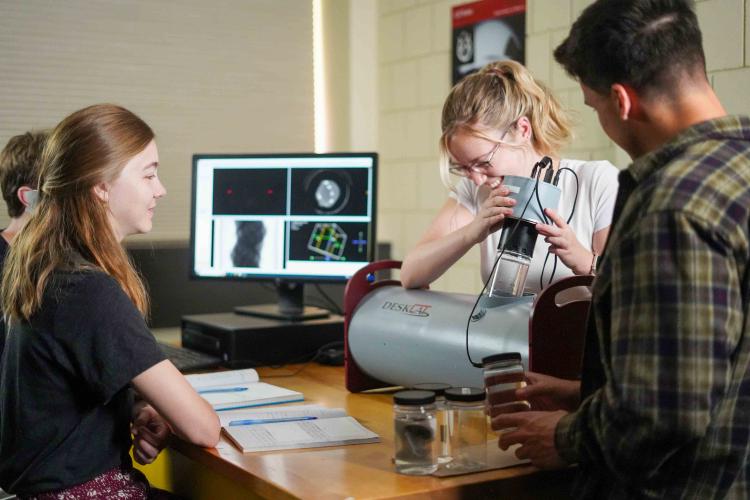
Biological and Medical Physics
Did you know many biological and medical problems have physics-based solutions? Biological physics is key to human health, while medical physics powers tools like MRIs and CAT scans. The BMPH major prepares you for a future in clinical research and health care innovation.
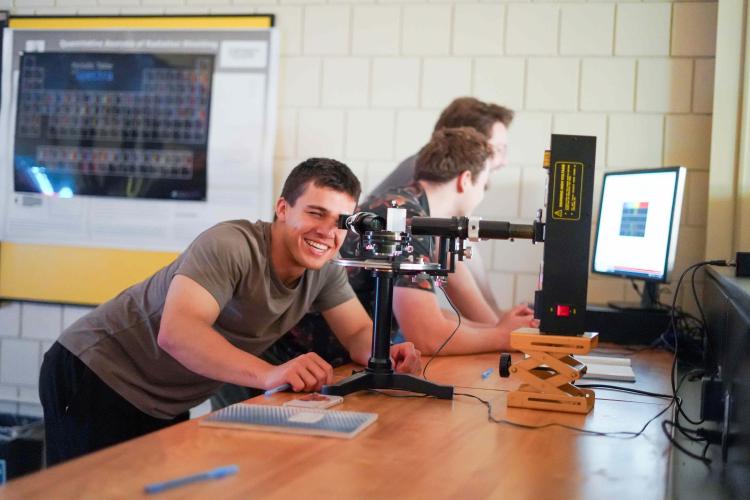
Chemical Physics
Physics and chemistry are combined in this major, which includes classes in areas such as materials science and the quantum mechanical basis of molecular structure. In the lab, you’ll get hands-on with cutting-edge equipment as you explore fascinating physics concepts like x-ray diffraction and nuclear magnetic resonance.
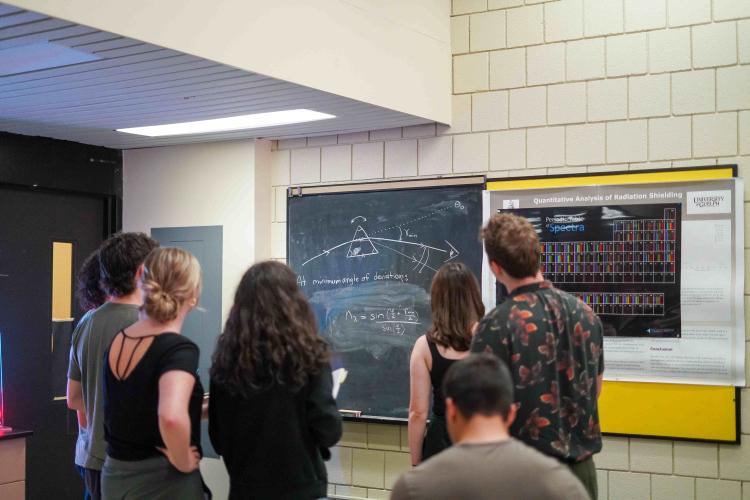
Theoretical Physics
With extra math courses, you’ll build the skills to tackle modern theoretical physics head-on. Apply your special expertise to fields as diverse as black-hole structure calculations, theory of superconductivity, the physics of nuclei and neutron stars, or stock market analysis.
Program Contacts
| Name | Role |
| Mike Massa | First Year Coordinator |
| Joanne O'Meara | Second Year Coordinator |
| Eric Poisson | Third Year Coordinator |
| Elisabeth Nicol | Fourth Year Coordinator |
Coop Opportunities
"I had no idea what I wanted to do as a career, Co-op help me see what else is out there. In my first Co-op, I was able to give research a shot for eight months which was definitely a great experience. It helped get me papers, get me to conferences, but also helped me learn that it's not for me for the long term. My Co-op at the Canadian Space Agency (CSA) exposed me to Space Health which I don't think I ever would have encountered otherwise. I was able to see the different groups at the CSA and what they do. Not only my own Health Beyond team but also the Radiation Team and the Life Sciences Team. I've discovered what I really like to do and met role models in each Department." - Jocelyn Coulombe
Undergraduate Research Opportunities
Our department includes 18 faculty, 40 graduate students and 10 post-doctoral fellows/research associates, providing lots of research opportunities in a wide array of physics research.
In a typical year, 10-15 undergraduate students work in a research lab as summer students. In their final year, undergraduate students participate in Research in Physics course where they conduct novel investigations within a research group – many of our students have had their work published in leading physics journals through these placements!
Marketable Skills for the Modern Workforce
Physics undergraduate students gain key skills relevant to the job market, and our graduates have a high employment rate. Mostly recently, 96 per cent of physical sciences alumni reported employment after graduation.
Just a few ways we’re preparing you for the workforce:
- Computer programming is an increasingly critical skill for any scientist; Guelph Physics programs have integrated Python programming skills throughout courses starting in second year, which are then strongly reinforced with the Computational Physics course in third year.
- We know the importance of communication skills as well, and offer an innovative Science Communication course, helping our students develop a portfolio that makes them stand out in today's job market.
Advanced Specialization
Many Guelph Physics students proceed to top graduate schools or professional programs throughout Canada, the United States and Europe. These students pursue additional specialization in a broad range of fields, including but not limited to:
- cosmology or astronomy
- materials science or engineering
- environmental science, oceanography, geological engineering or geography
- nuclear or particle physics
- teacher's college or physics education research
- theoretical physics, including general relativity or string theory
- biophysics, medical physics, or medicine
- mathematics, statistics, or mathematical finance
